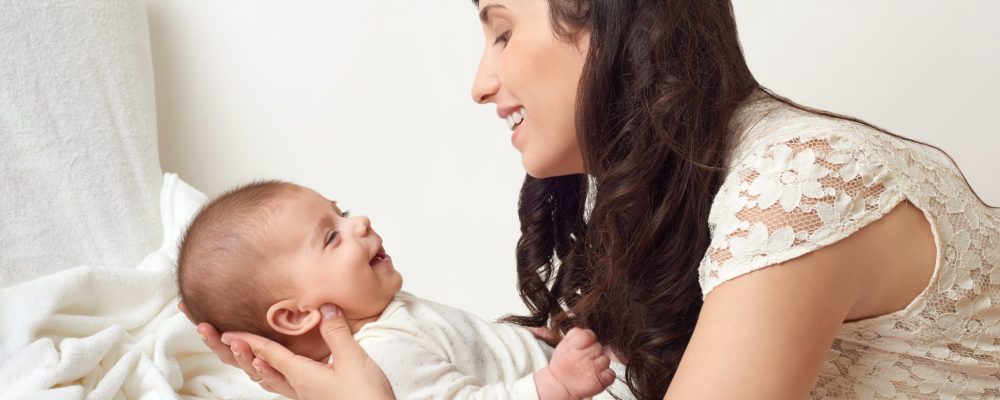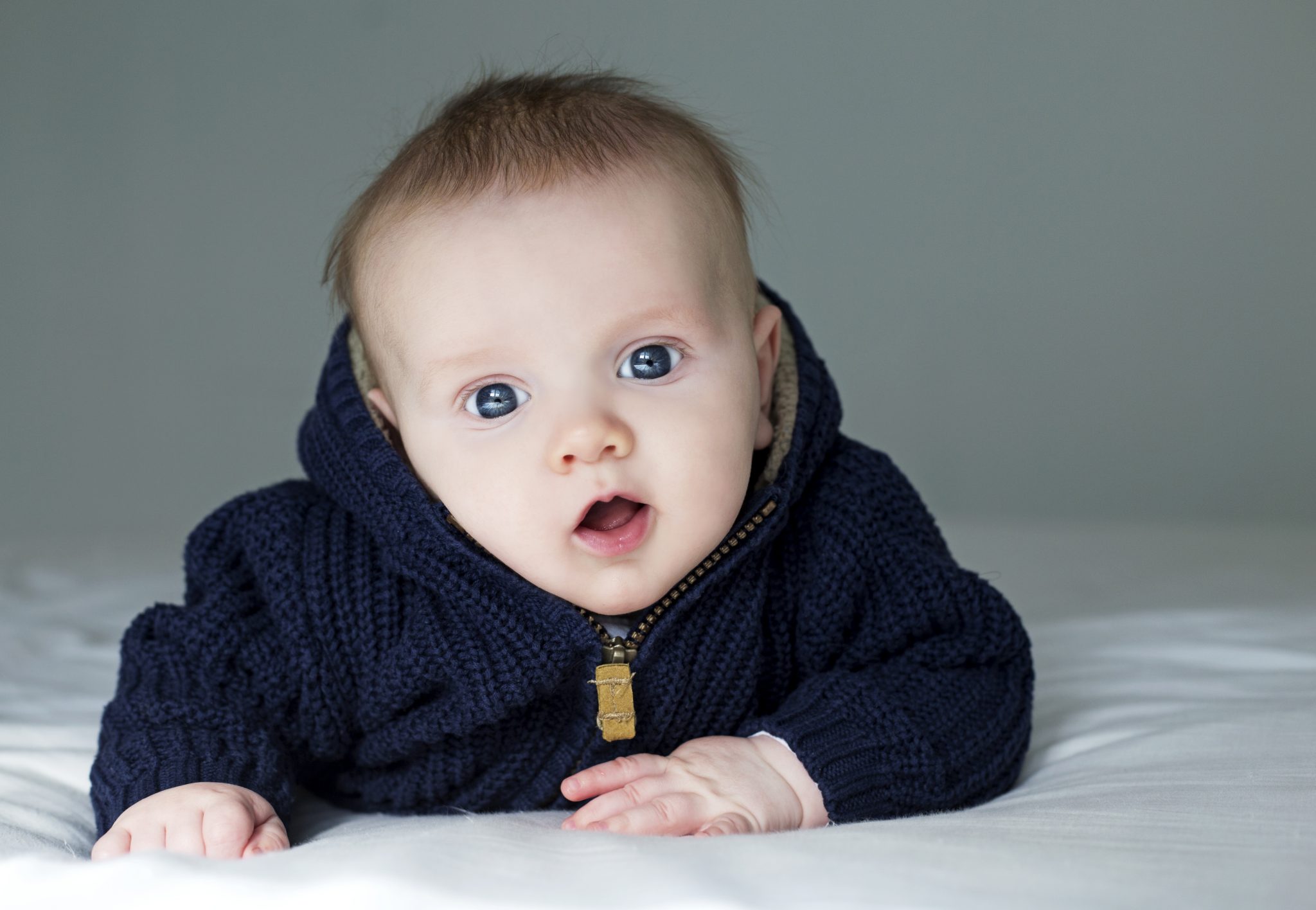Whether you realize it or not, communication with your baby is well established many weeks before your baby is born. There’s a deep connection between mother and baby, it certainly goes beyond the physical link through umbilical cord which transfers oxygen and all the nutrients to your baby’s developing body. In some countries, even doctors and midwives in maternity hospitals respect mother’s “gut feeling” when it comes to unborn baby’s well-being. All you need to say is: “I have a bad feeling about my baby today” and in minutes the doctor will give you a check up or monitor your baby’s life functions. You can communicate with your baby intentionally and teach baby happiness by always telling him “It’s alright” when there’s nothing to worry about. You’re about to learn HOW to say it so the baby understands.
Your baby is talking to you
The minute your baby is born and takes his first breath in, he starts communicating. It’s like he’s screaming: “Wuuuaaaa! Where am I? What am I doing here? Where has my cosy warm world gone?” A miracle called “the birth of a new baby” is completely natural and the baby is meant to feel little bit shocked of what happened. He comes to this world equipped with few basic reflexes which provide him with a good life-starting point and significantly increase his chances of survival. It’s been this way since many hundreds years ago.
Listen to your baby and feel what he’s trying to say. His first message is: “Make me feel safe again, PLEASE!” As soon as your newborn baby is lying on your chest listening to your heartbeat, he calms down as he knows it’s you. His mum. This is the beginning of his life. Your baby now needs to figure out how the entire new world works. He’s confronted with tons of different, all new, feelings that he needs to deal with. Any time he’s not comfortable, he calls for your help.
Your baby’s first message to you is: “Make me feel safe again, please!”
Day by day you will understand your baby more. You know when he’s hungry, he might even learn how to “say” it without crying. By turning his head around and opening his mouth wide on each side, or just by wiggling and making unsettled little sounds he’ll let you know that it’s another mealtime for him. Also you will recognize clearly if he’s in pain or if he’s just tired.
Your baby is listening to you
As with every other relationship in the world, it’s the same with mummy-baby relationship: It’s mutual. The same way you’re listening to your baby, your baby is listening to you. Ever since he’s in your womb. He feels what you feel (or at least he’s receptive of it) and as soon as he develops his hearing in the second trimester of your pregnancy, he can also hear you. He’s listening to your voice every day. Once he’s born, his first real understanding comes from the tone of your voice. He won’t know the meaning of words for many weeks to follow but he will clearly understand different variation of the tone of your voice and some of your body language too.
Human baby is a fast learner
Baby knows your voice when he’s born. He might also know daddy’s voice and some frequent sounds or everyday noises. If you’ve been playing the same song or lullaby often during your pregnancy, you might notice how surprised your baby looks when he hears it “for real.” He will be concentrating on the sound and melody. He knows the song and he likes it because he knows it. This is the first thing that your baby has learnt.
Babies love familiar things
Have you ever heard that babies love ads on TV? I don’t think there’s any special signal transmitted with the ad that only babies can hear. If you watch the TV often, there are the same ads several times a day. Your baby will get used to them and he will like them simply because they’re familiar. It’s similar with daily routine. Babies feel more secure if they know what comes next. You don’t need to put your baby to bed at 8pm sharp every night. More important is the sequence of things you’re doing when putting your baby to bed. As soon as your baby learns your daily ritual, he will understand that it’s bed time and that bed time is for sleeping.
How to teach baby happiness
The biggest need of all the needs little baby has is: Need for being with mummy. Why? Because not being with mummy means (for the baby) that he’s abandoned in the middle of the jungle and he’s gonna die! Or at least baby feels this way when he’s not being held or rocked or fed. What would you do if you thought that you’re about to die or your life was in danger? Of course you would scream for help, especially if you couldn’t help yourself like the baby can’t.
Keeping in mind that babies are fast learners, there’s one great thing you can do for your baby. You can teach him that everything is alright. How? It’s simple. Let’s go through the inputs once again:
- Babies are fast learners
- Babies love familiar things
- Babies love rituals and repetition
First, you need to make your baby happy. When he’s comfortable and calm, sing him a song or repeat him some phrases in calm loving voice. By doing it often when he feels happy, he will start associating them with happy feelings and later you’ll notice that he calms down when he hears them.
If you sing the same song to your baby over and over again when feeling happy, your baby will soon be associating this song with happy feelings.
I’m sure all mums are doing it even without noticing. They’re teaching their babies when there is or there isn’t a reason to panic. Having a favourite song is one of the best ways of calming down screaming baby, of course if nothing serious is bothering him. By singing, you’re telling him: “It’s ok, I’m right here watching over you, don’t worry.” I found it really helpful when my baby was strapped in a car seat and I had to drive. I couldn’t just stop the second my baby got “the abandoned in a jungle” panic attack.
The good thing is that the teach baby happiness technique applies to all rituals and repetitions. Babies really do feel safer when they know what to expect. They’re happy to see what they recognize from the past and they associate sounds and sequence of actions with nice feelings. Keep explaining to your baby that everything is fine with huge amount of patience and love. He will understand and it will be great help for you in many situations that are new to your baby and your baby might not feel good about at first. You will know how to tell your baby: “Everything is ok,” the way he understands.




